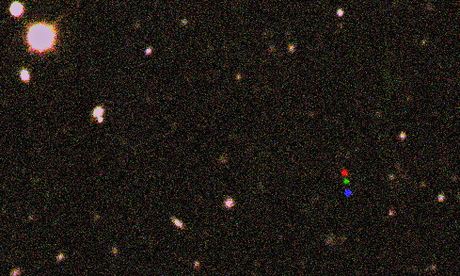http://www.theguardian.com/science/2014/mar/26/dwarf-planet-super-earth-solar-system-2012-vp113

The such serious thing has already had its own page on Wikipedia:
http://en.wikipedia.org/wiki/2012_VP113
The orbit of the just discovered planet suggests that there probably is an another big planet on the far outer reaches of the solar system (called “Super Earth”).
An another interesting thing seems to be a way which the new planet was discovered. Phil Plait, author of http://www.slate.com/blogs/bad_astronomy/2014/03/26/oort_cloud_revealed_2012_vp113_has_largest_perihelion_distance_known.html claims that discovering new cosmic objects is a matter of time: “Our telescopic eyes are getting better at seeing these incredibly remote objects; our hardware and software better at teasing out their faint signal.”. Did astronomers find that new planet? Or was a whole work done by machines and they “only” confirmed its existence?
I would like to use this discovery to talk about cosmic research.
1. How important are cosmic research for us? What benefits do the give for ordinary people?
2. How many planets does our solar system contain? Do you think that the solar system will ever be researched as well as the Earth is nowadays?
3. Should we spend such big money for cosmic research even if we are able to explore effectively only a small part of universe?
4. When will people be able to travel to different planets? If you had a such possibility, would you like to take a part in such expedition and why?
5. Will future discoveries of new cosmic objects be depended more on astronomer (who are creating a new theories) work or on other engineers (who are creating better hardware and software) work?
